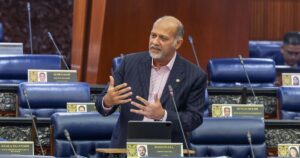WE normally don’t associate deaths with climate change. Because when deaths do occur, we blame it on natural disasters. But the real culprit is a bitter pill to swallow for many countries: climate inaction, a study by The Lancet, a health journal, quoted by AFP reveals.
Lancet Countdown, an annual study tracking the health impacts of climate change, released days before the 30th conference of parties (COP30) in Brazil, showed how deadly climate inaction can be.
Here are some of the consequences of ignoring climate change: 546,000 people died each year between 2012 and 2021 because of exposure to heat, a massive increase in figures from the 1990s; and toxic fumes from wildfires killed a record 154,000 people last year.
These aren’t the cause of natural disasters but policy failures by governments, especially the biggest emitters of greenhouse gases.
The authors of the study suggest three solutions: increased investment in zero-carbon energy and climate-resilient infrastructure, and better planning for health challenges.
All three solutions are a challenge for a climate-sceptic world. Investment in zero-carbon energy is a far cry from what is being spent on fossil fuels, making net-zero emissions by 2050 close to impossible.
Money for climate-resilient infrastructure, too, is far below what is required. Health challenges posed by climate change face a similar fate by being the least discussed in previous summits.
COP30 is bound to discuss these but not all the nearly 200 countries which signed the Paris Agreement in 2015 are attending. That will pose a challenge for climate action.
The United States, the world’s second biggest emitter of fossil fuel emissions, will be absent as it has withdrawn from the agreement, although the withdrawal will only take effect next year.
What is worse, President Donald Trump took to the podium at the United Nations General Assembly in September criticising climate change as “the greatest con job perpetrated on the world”. A stretch too far given the scientific evidence disclosed every year.
He is also pushing for oil and gas drilling while putting an end to renewable energy initiatives introduced by previous presidents. Call it a double whammy.
Brazil, too, didn’t help itself by hosting COP30 in Belem, an Amazon region. A section of the forest was sacrificed for a road to be built to give delegates access to the area.
Another controversy that host Brazil has created for itself is fresh approvals for the exploration and production of fossil fuels, the biggest contributor to global warming.
The Paris Agreement calls for the warming of the Earth to be limited to 1.5ºC relative to preindustrial level. That temperature was recorded last year, making 2024 the warmest year in history.
Even 2ºC means an unlivable planet, especially for the vulnerable island states in the Pacific Ocean.
This doesn’t mean we have passed the target set in Paris in 2015 for good. There is still hope to keep it within the limit, but the window is closing fast.
It is pointless if only a fraction of the 200 nations go into climate action mode while others turn climate sceptics. All must act in concert to make the Earth livable for all.
© New Straits Times Press (M) Bhd






